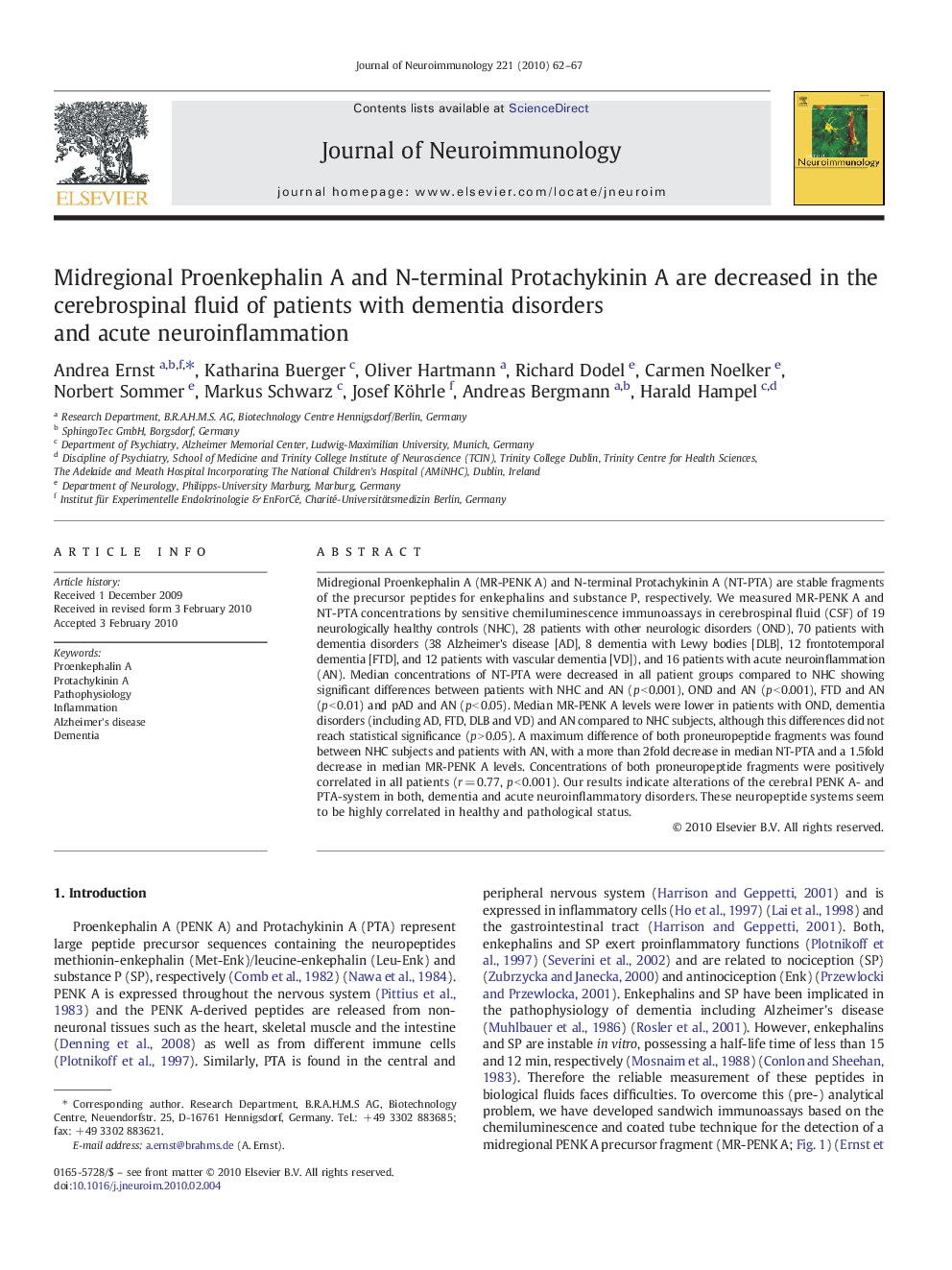| Article ID | Journal | Published Year | Pages | File Type |
|---|---|---|---|---|
| 3064607 | Journal of Neuroimmunology | 2010 | 6 Pages |
Midregional Proenkephalin A (MR-PENK A) and N-terminal Protachykinin A (NT-PTA) are stable fragments of the precursor peptides for enkephalins and substance P, respectively. We measured MR-PENK A and NT-PTA concentrations by sensitive chemiluminescence immunoassays in cerebrospinal fluid (CSF) of 19 neurologically healthy controls (NHC), 28 patients with other neurologic disorders (OND), 70 patients with dementia disorders (38 Alzheimer's disease [AD], 8 dementia with Lewy bodies [DLB], 12 frontotemporal dementia [FTD], and 12 patients with vascular dementia [VD]), and 16 patients with acute neuroinflammation (AN). Median concentrations of NT-PTA were decreased in all patient groups compared to NHC showing significant differences between patients with NHC and AN (p < 0.001), OND and AN (p < 0.001), FTD and AN (p < 0.01) and pAD and AN (p < 0.05). Median MR-PENK A levels were lower in patients with OND, dementia disorders (including AD, FTD, DLB and VD) and AN compared to NHC subjects, although this differences did not reach statistical significance (p > 0.05). A maximum difference of both proneuropeptide fragments was found between NHC subjects and patients with AN, with a more than 2fold decrease in median NT-PTA and a 1.5fold decrease in median MR-PENK A levels. Concentrations of both proneuropeptide fragments were positively correlated in all patients (r = 0.77, p < 0.001). Our results indicate alterations of the cerebral PENK A- and PTA-system in both, dementia and acute neuroinflammatory disorders. These neuropeptide systems seem to be highly correlated in healthy and pathological status.
